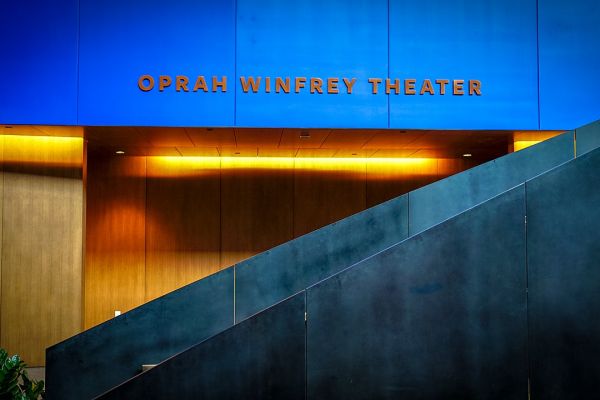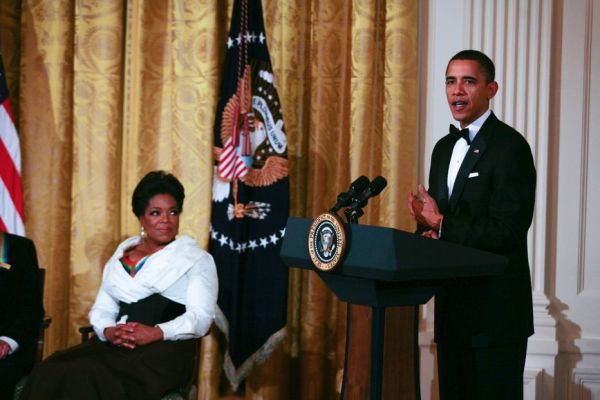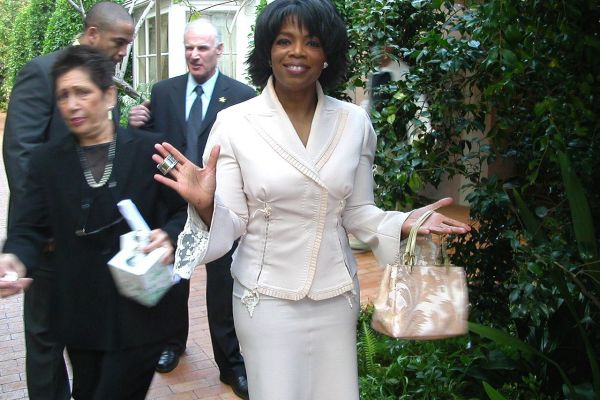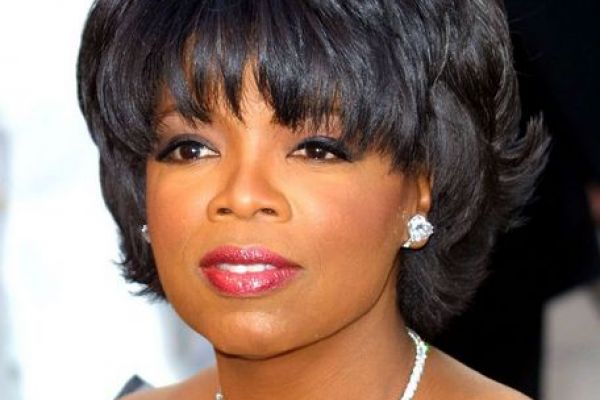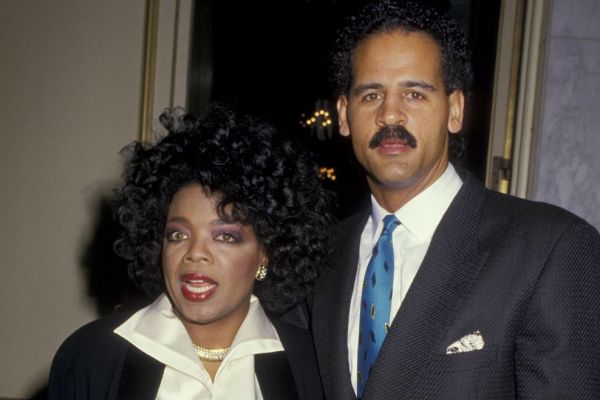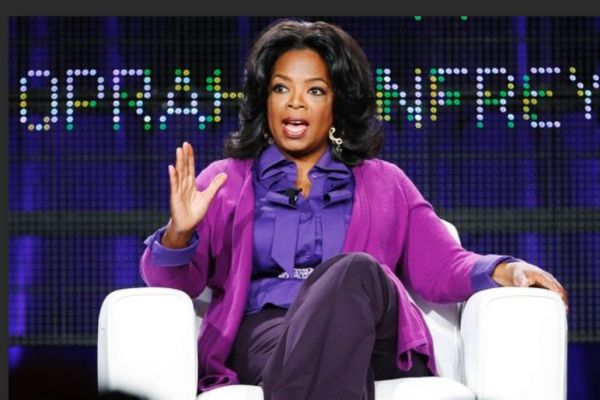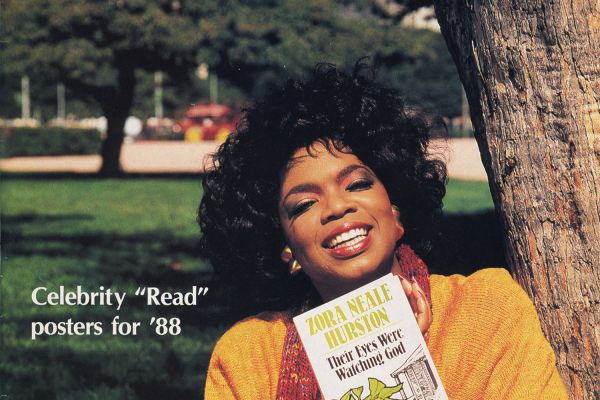She is best known for her talk show The Oprah Winfrey Show, which was the highest-rated television program of its kind in history and was nationally syndicated from 1986 to 2011 in Chicago, Illinois.
Winfrey's first name was spelled "Orpah" on her birth certificate after the biblical figure in the Book of Ruth, but people mispronounced it regularly and "Oprah" stuck.
She is an American media proprietor, talk show host, actress, producer, and philanthropist.
Dubbed the "Queen of All Media", she was the richest African American of the 20th century and North America's first multi-billionaire black person, and has been ranked the greatest black philanthropist in American history. Several assessments rank her as the most influential woman in the world.
In 2013, she was awarded the Presidential Medal of Freedom by President Barack Obama and honorary doctorate degrees from Duke and Harvard.
| Born | Orpah Gail Winfrey January 29, 1954 Kosciusko, Mississippi, U.S. |
|---|---|
| Residence | Montecito, California Lavallette, New Jersey Telluride, Colorado Maui, Hawaii Chicago, Illinois Fisher Island, Florida |
| Alma mater | Tennessee State University |
| Occupation |
|
| Years active | 1971–present |
| Salary | $75 million (2013) |
| Net worth | US$ 2.8 billion (February 2018) |
| Political party | Democratic |
| Partner(s) | Stedman Graham (1986–present) |
| Children | Canaan (born c. 1968, died c. 1968) |
| Website | www.oprah.com |
Filmography
Winfrey co-founded the women's cable television network Oxygen. She is also the president of Harpo Productions (Oprah spelled backwards).
Forbes' list of The World's Billionaires has listed Winfrey as the world's only black billionaire from 2004 to 2006 and as the first black woman billionaire in the world that was achieved in 2003. As of 2014, Winfrey has a net worth in excess of 2.9 billion dollars[104] and has overtaken former eBay CEO Meg Whitman as the richest self-made woman in America.
In 2018, Oprah Winfrey accepted the Cecil B. DeMille Award for lifetime achievement
Oprah Winfrey's Golden Ges speech
In 1964, I was a little girl sitting on the linoleum floor of my mother's house in Milwaukee watching Anne Bancroft present the Oscar for best actor at the 36th Academy Awards. She opened the envelope and said five words that literally made history: "The winner is Sidney Poitier." Up to the stage came the most elegant man I had ever seen. I remember his tie was white, and of course his skin was black, and I had never seen a black man being celebrated like that. I tried many, many times to explain what a moment like that means to a little girl, a kid watching from the cheap seats as my mom came through the door bone tired from cleaning other people's houses. But all I can do is quote and say that the explanation in Sidney's performance in "Lilies of the Field": "Amen, amen, amen, amen."
In 1982, Sidney received the Cecil B. DeMille award right here at the Golden Globes and it is not lost on me that at this moment, there are some little girls watching as I become the first black woman to be given this same award. It is an honor -- it is an honor and it is a privilege to share the evening with all of them and also with the incredible men and women who have inspired me, who challenged me, who sustained me and made my journey to this stage possible. Dennis Swanson who took a chance on me for "A.M. Chicago." Quincy Jones who saw me on that show and said to Steven Spielberg, "Yes, she is Sophia in 'The Color Purple.'" Gayle who has been the definition of what a friend is, and Stedman who has been my rock -- just a few to name.
I want to thank the Hollywood Foreign Press Association because we all know the press is under siege these days. We also know it's the insatiable dedication to uncovering the absolute truth that keeps us from turning a blind eye to corruption and to injustice. To -- to tyrants and victims, and secrets and lies. I want to say that I value the press more than ever before as we try to navigate these complicated times, which brings me to this: what I know for sure is that speaking your truth is the most powerful tool we all have. And I'm especially proud and inspired by all the women who have felt strong enough and empowered enough to speak up and share their personal stories. Each of us in this room are celebrated because of the stories that we tell, and this year we became the story.
But it's not just a story affecting the entertainment industry. It's one that transcends any culture, geography, race, religion, politics, or workplace. So I want tonight to express gratitude to all the women who have endured years of abuse and assault because they, like my mother, had children to feed and bills to pay and dreams to pursue. They're the women whose names we'll never know. They are domestic workers and farm workers. They are working in factories and they work in restaurants and they're in academia, engineering, medicine, and science. They're part of the world of tech and politics and business. They're our athletes in the Olympics and they're our soldiers in the military.
And there's someone else, Recy Taylor, a name I know and I think you should know, too. In 1944, Recy Taylor was a young wife and mother walking home from a church service she'd attended in Abbeville, Alabama, when she was abducted by six armed white men, raped, and left blindfolded by the side of the road coming home from church. They threatened to kill her if she ever told anyone, but her story was reported to the NAACP where a young worker by the name of Rosa Parks became the lead investigator on her case and together they sought justice. But justice wasn't an option in the era of Jim Crow. The men who tried to destroy her were never persecuted. Recy Taylor died ten days ago, just shy of her 98th birthday. She lived as we all have lived, too many years in a culture broken by brutally powerful men. For too long, women have not been heard or believed if they dare speak the truth to the power of those men. But their time is up. Their time is up.
Their time is up. And I just hope -- I just hope that Recy Taylor died knowing that her truth, like the truth of so many other women who were tormented in those years, and even now tormented, goes marching on. It was somewhere in Rosa Parks' heart almost 11 years later, when she made the decision to stay seated on that bus in Montgomery, and it's here with every woman who chooses to say, "Me too." And every man -- every man who chooses to listen. In my career, what I've always tried my best to do, whether on television or through film, is to say something about how men and women really behave. To say how we experience shame, how we love and how we rage, how we fail, how we retreat, persevere and how we overcome. I've interviewed and portrayed people who've withstood some of the ugliest things life can throw at you, but the one quality all of them seem to share is an ability to maintain hope for a brighter morning, even during our darkest nights. So I want all the girls watching here, now, to know that a new day is on the horizon! And when that new day finally dawns, it will be because of a lot of magnificent women, many of whom are right here in this room tonight, and some pretty phenomenal men, fighting hard to make sure that they become the leaders who take us to the time when nobody ever has to say "Me too" again.
Oprah Winfrey's Philanthropy
Philanthropy
Winfrey visits evacuees from New Orleans temporarily sheltered at the Reliant center in Houston following Hurricane Katrina.
In 2004, Winfrey became the first black person to rank among the 50 most generous Americans and she remained among the top 50 until 2010. By 2012, she had given away about $400 million to educational causes.
As of 2012, Winfrey had also given over 400 scholarships to Morehouse College in Atlanta, Georgia. Winfrey was the recipient of the first Bob Hope Humanitarian Award at the 2002 Emmy Awards for services to television and film. To celebrate two decades on national TV, and to thank her employees for their hard work, Winfrey took her staff and their families (1,065 people in total) on vacation to Hawaii in the summer of 2006.
In 2013, Winfrey donated $12 million to the Smithsonian’s National Museum of African American History and Culture.[193] President Barack Obama awarded her the Presidential Medal of Freedom later that same year.
Oprah Winfrey's Angel Network
Oprah's Angel Network
In 1998, Winfrey created the Oprah's Angel Network, a charity that supported charitable projects and provided grants to nonprofit organizations around the world. Oprah's Angel Network raised more than $80,000,000 ($1 million of which was donated by Jon Bon Jovi). Winfrey personally covered all administrative costs associated with the charity, so 100% of all funds raised went to charity programs. In May 2010, with Oprah's show ending, the charity stopped accepting donations and was shut down.[195] [196]
In the wake of Hurricane Katrina, Oprah created the Oprah Angel Network Katrina registry which raised more than $11 million for relief efforts. Winfrey personally gave $10 million to the cause. Homes were built in Texas, Mississippi, Louisiana, and Alabama before the one-year anniversary of Hurricanes Katrina and Rita.
Oprah Winfrey in South Africa for Girls
South Africa
Main article: Oprah Winfrey Leadership Academy for Girls
In 2004, Winfrey and her team filmed an episode of her show, Oprah's Christmas Kindness, in which Winfrey travelled to South Africa to bring attention to the plight of young children affected by poverty and AIDS. During the 21-day trip, Winfrey and her crew visited schools and orphanages in poverty-stricken areas, and distributed Christmas presents to 50,000 children,[199] with dolls for the girls and soccer balls for the boys, and school supplies. Throughout the show, Winfrey appealed to viewers to donate money to Oprah's Angel Network for poor and AIDS-affected children in Africa. From that show alone, viewers around the world donated over $7,000,000. Winfrey invested $40 million and some of her time establishing the Oprah Winfrey Leadership Academy for Girls in Henley on Klip south of Johannesburg, South Africa. The school set over 22 acres, opened in January 2007 with an enrollment of 150 pupils (increasing to 450) and features state-of-the-art classrooms, computer and science laboratories, a library, theatre, and beauty salon. Nelson Mandela praised Winfrey for overcoming her own disadvantaged youth to become a benefactor for others. Critics considered the school elitist and unnecessarily luxurious. Winfrey rejected the claims, saying: "If you are surrounded by beautiful things and wonderful teachers who inspire you, that beauty brings out the beauty in you." Winfrey, who has no surviving biological children, described maternal feelings towards the girls at Oprah Winfrey Leadership Academy for Girls. Winfrey teaches a class at the school via satellite.




